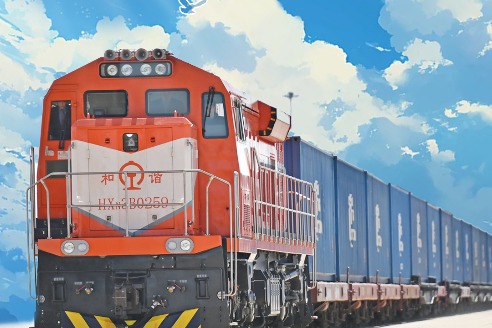Mainland, HK begin mutual recognition of legal judgments
Civil and commercial case rulings can now be enforced reciprocally


The Hong Kong Special Administrative Region and the Chinese mainland have implemented reciprocal recognition and enforcement of each other's judgments in civil and commercial court cases, which high-ranking legal officials from both sides agreed will greatly boost the city's standing as an international legal hub.
Also, Hong Kong is expected to establish a standing interfacing platform with the Supreme People's Court very soon, to take forward the research and practical work on judicial and legal matters relating to the Guangdong-Hong Kong-Macao Greater Bay Area and address issues stemming from differences in the legal systems, an official from the SPC told a roomful of about 300 people attending a high-level legal forum on the reciprocal arrangement on Monday in Hong Kong.
The Arrangement on Reciprocal Recognition and Enforcement of Judgments in Civil and Commercial Matters by the Courts of the Mainland and of the HKSAR — one of nine arrangements so far regarding mutual legal assistance in civil and commercial matters on both sides of the boundary — came into force on Monday.
The arrangement, concluded in 2019 by the SPC and Hong Kong's Department of Justice, ensures creditors do not have to file separate litigations of the same dispute and thus helps to save judicial costs, including the time and economic costs for parties involved.
However, under the arrangement, the judgments of courts on the mainland will not automatically be applicable in Hong Kong, and vice versa, and assets relating to the case will not automatically be confiscated by the other side. Whether or not to apply the judgment on the other side of the boundary is a decision for the creditor to initiate, provided he or she has prevailed in the court proceedings.
During the seminar, Vice-President of the SPC Yang Wanming said that after implementation of the new arrangement, which covers intellectual property — usually excluded from similar international covenants — judgments of more than 90 percent of civil and commercial cases between the mainland and Hong Kong will be mutually recognized and enforced. This achieves the maximum level of mutual recognition and enforcement within one country, Yang said.
Noting that so far nine mutual legal assistance arrangements have been signed by the mainland and Hong Kong, Yang said that full coverage of mutual legal assistance regarding civil and commercial issues has been achieved. The "one country, two systems" principle has also been continuously enriched and developed within the judicial field, Yang said.
He added he believes that a sophisticated and convenient reciprocal recognition mechanism between Hong Kong and the mainland will encourage overseas business people and investors to choose Hong Kong courts to resolve cases involving mainland assets. The mechanism will also strengthen Hong Kong's role in helping mainland enterprises tap into the global market.
The new arrangement relieves people from having to go to the trouble of initiating litigations of the same dispute in two different jurisdictions, Yang said.
At the same event, Hong Kong Secretary for Justice Paul Lam Ting-kwok called the arrangement a "milestone", saying it would help solve civil and commercial disputes involving cross-border elements and benefit investors and businesses, especially those from overseas.
He believes that the arrangement will enhance Hong Kong's status as an international legal service and dispute resolution services center, and will also inspire confidence in investors and businesses to explore investment and opportunities on the mainland.
Si Yanli, deputy head of the Research Office of the SPC, said the arrangement, designed to serve the interests of residents in both regions, fully demonstrates mutual respect and willingness to seek common ground while observing the differences between the two sides.
Si revealed that discussion of establishing a judicial and legal standing interfacing platform within the Greater Bay Area, which Hong Kong Chief Executive John Lee Ka-chiu referred to in his 2023 Policy Address, is underway by the Department of Justice and SPC, and is expected to be completed soon.
Si said she hopes that Hong Kong will continuously deepen its integration with the mainland's judicial and legal rules, achieving closer judicial connections within the country. Simultaneously, Hong Kong should continue to leverage its important advantage of having connections with the world, serving the country's high-level opening-up globally.
She also revealed that there will soon be substantial progress in allowing Hong Kong-invested enterprises registered in the entire Greater Bay Area to adopt Hong Kong law and to choose Hong Kong's arbitration services, which the SPC has been actively conducting research and making progress on both in terms of legal aspects and practical implementation.
amberwu@chinadailyhk.com
- Charting China's progress in 75 years (6)
- Chinese paddlers pocket men's and women's doubles trophy
- HK-Zhuhai-Macao Bridge sees record daily passage
- Biden extends congrats to Xi on PRC's 75th founding anniversary
- Booming travel, consumption mirrors economic vitality
- Chinese mainland tourists rediscover Hong Kong in golden week





































